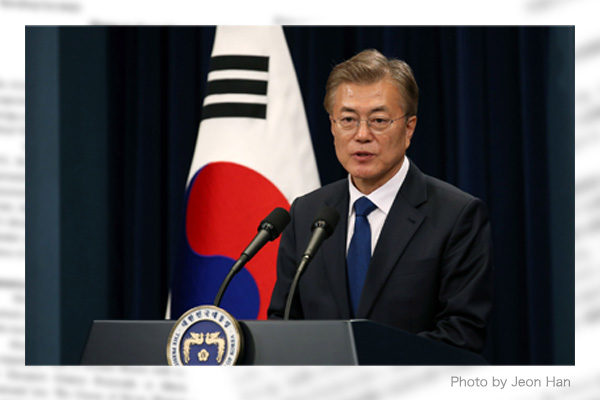On April 7, mayoral by-elections took place in Seoul and Busan to elect new mayors to serve the remaining one year of the term after sexual harassment scandals forced the Busan mayor to resign and the Seoul mayor to commit suicide.
In Seoul, Oh Se-hoon (a former Seoul mayor), a candidate of the main opposition People Power Party garnered 58% of the votes cast over his rival Park Young Sun (a former SMEs and startups minister) from the ruling Democratic Party who received 39%. Oh overwhelmed Park by getting more votes than the rival in all 25 districts in the capital city. In Busan, PPP candidate Park Heong Joon gained 63% of the votes against 34% for DP candidate Kim Young Choo.
Young voters shunning Moon regime
Young voters in their 20s and 30s have remarkably shunned President Moon Jae In’s government. In Seoul, 55% of voters in their 20s and 57% of those in their 30s voted for the opposition candidate. Particularly, 73% of male voters in their 20s supported him, compared with 70% of those in their 60s seen traditionally as conservatives. The results indicate a reversal from a general election only one year ago in which 56% of voters in their 20s and 61% of those in their 30s voted for the ruling parties.
Reasons for young voters’ deviation from their support for the government include job shortages, real estate price spikes and the Moon officials’ illegal property speculation. As the government substantially raised the minimum wage under its economic policy seeking income-led growth, companies have reduced the recruitment of not only regular employees but also nonregular employees including part-timers, leading young people to face serious job shortages. Real estate prices have skyrocketed, with condominium prices in Seoul have risen beyond those in Tokyo, making it almost impossible for young people to purchase homes. Furthermore, those related to the government and the ruling party, including the daughter of President Moon, have got massive profits on condominium resales while many Korea Land and Housing Corporation officials used insider information for speculation in land. These scandals have angered young voters.
Despite opposition candidates’ victory in Seoul and Busan mayoral elections, however, South Korean politics cannot be expected to go in a right direction. Under the slogan of eradicating old evils, the Moon government attempted to replace mainstream forces in South Korea and used prosecutors to arrest former senior administration officials in defiance of the rule of law. PPP leaders and conservative media including the Chosun Ilbo newspaper have also supported the arrest and imprisonment of former Presidents Park Geun Hye and Lee Myung Bak and other former senior administration officials in a people’s court manner. The arrest was led by former Prosecutor General Yoon Seok Youl, who is gaining popularity for his confrontation with the Moon government.
South Korean people are seeking scapegoats and only willing to show their disgust by the arrest of former senior administration officials. They do not have any sense of crisis about the Moon government’s destruction of anticommunist liberal democracy as South Korea’s national cause.
Conservative reconstruction candidate suffered a devastating defeat
In the Busan mayoral election, Jeong Kyu Jae, a former chief editor for the Korean Economic Daily, also ran calling for conservative reconstruction and removing a comfort woman statue in front of the Japanese consulate. Jeong said on his campaign trail: “Innocent former President Park Geun Hye has been in prison for four years. The opposition party is an accomplice of imprisoning Park Geun Hye in defiance of the rule of law. Even if Moon Jae In and his clique are imprisoned next, Korea would never been normalized. Unless liberal democracy, the rule of law or the market economy is protected, Korea will be absorbed into the totalitarian camp and cease to exist.” However, he got only 1% of the votes, suffering a devastating defeat. This is the reason we cannot see the mayoral election results as a sign of the normalization of South Korean politics.
Tsutomu Nishioka is a senior fellow and a Planning Committee member at the Japan Institute for National Fundamentals and a visiting professor at Reitaku University. He covers South and North Koreas.


